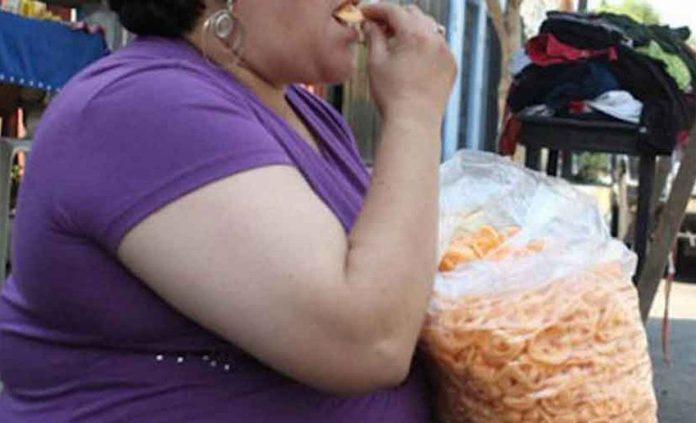Close to 4 million adult Mexicans joined the ranks of the obese between 2012 and 2016, a result of food insecurity and undernourishment according to the United Nations Food and Agriculture Organization (FAO).
In 2012, 20.5 million adults were considered obese, a figure that has since risen to 24.3 million.
Of the 150 countries assessed by the FAO, Mexico ranked sixth in terms of the percentage of the population that is considered obese.
However, gains have been made — though not in weight — among children. In 2012, 9% of children under five were obese. By 2016 the figure had dropped to 5.2%.
The figures were published in the agency’s study The State of Food Security & Nutrition around the World, which found that worldwide adult obesity rates are worsening, having risen from 11.7% in 2012 to 13.2% in 2016. This means that in 2017 more than one in eight adults, or more than 672 million people, are obese.
The study explained that food insecurity, defined as unreliable access to food, can contribute to overweight, obesity and undernourishment, and that high rates of three conditions coexist in many countries around the world.
Expensive nutritious, fresh foods, the stress of living with food insecurity and physiological adaptations to food restrictions are all contributing factors that put families at risk of suffering overweight and obesity, said the document.
“When household resources for food become scarce, people choose less expensive foods that are often high in calories and low in nutrients,” it continued.
“Food insecurity is associated with low birthweight in infants . . . a risk factor for child stunting, which in turn is associated with overweight and obesity later in life,” said the document.
The FAO study concluded by stating that access to safe, nutritious and sufficient food must be framed as a human right, with priority given to the most vulnerable, paying special attention to children under five, school-age children, adolescent girls and women.
Source: Vanguardia (sp)
